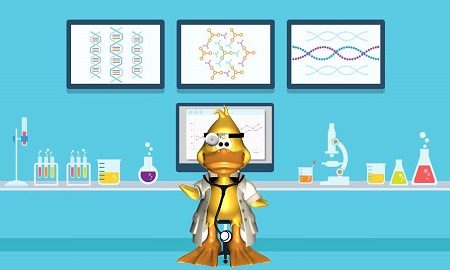Theoretical physicist and science popularizer Michio Kaku said,
“Science, however, is never conducted as a popularity contest, but instead advances through testable, reproducible, and falsifiable theories.”[1]
Real operational science is testable, reproducible and falsifiable. Which of course excludes Darwinian evolution, since it is neither testable, reproducible nor falsifiable – at least it can’t be falsified to the satisfaction of Darwinists. Nevertheless in the scientific spirit of inquiry it is good to examine what many believe to be the “science” of evolution. Creation.com and The Question Evolution Project have established February 12 – Darwin’s birthday – as Question Evolution Day. A day to inquire about and question a theory many erroneously think has been established as a “fact” due to the incessant cheerleading by its advocates.[2]
Creation Ministries International has published an excellent article titled “15 Questions for Evolutionists” that covers well many of the unanswered challenges to evolutionary theory. Also for your consideration: a few years back Buzzfeed did a “listicle” featuring creationists asking questions that are either problematic for evolution or supportive of creation. The questions sought to expose a problem with evolutionary theory, but were asked in a manner that made them easy to refute, so I wrote an article to fine tune the questions called “Refining the Questions for Question Evolution day.” It’s in the spirit of these articles that I offer a few more questions (and challenges to evolutionists) for Question Evolution Day. Continue Reading


